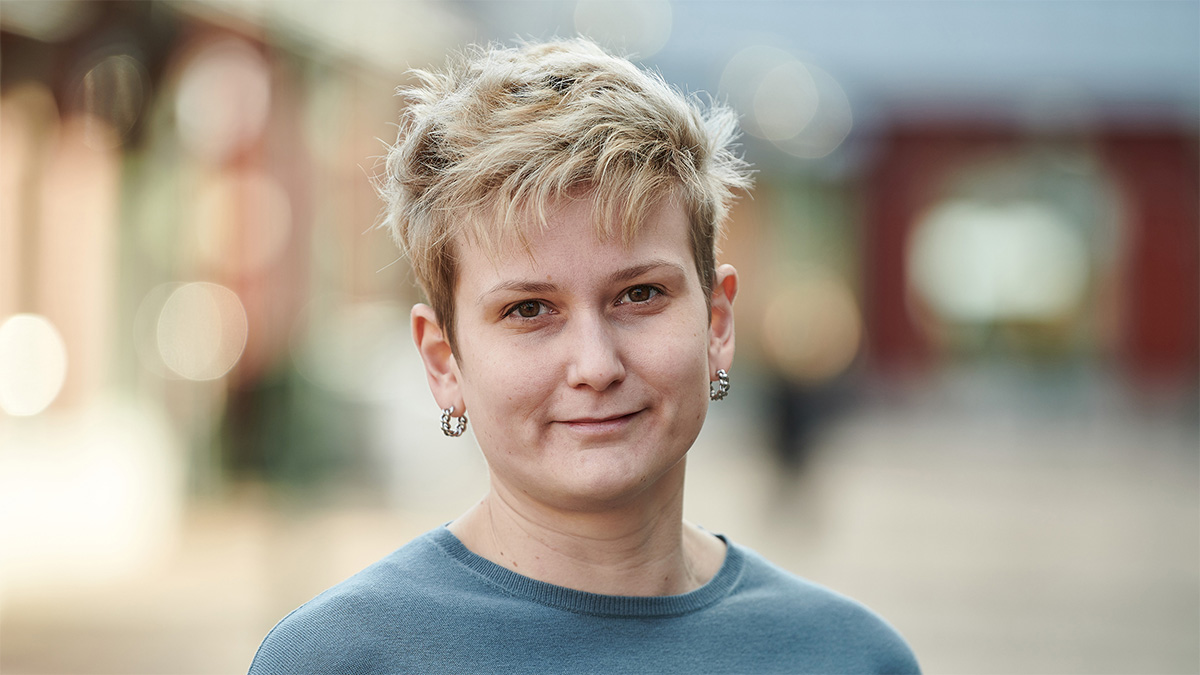Frida wants to make a difference
She could have taken a job in the gaming industry or in streaming entertainment services. Instead, Frida Nellros chose Scania. “I like technical development that makes a difference to society,” she explains.

Personal facts
Name: Frida Nellros
Age: 33
Studies: Master’s degree in engineering physics, licentiate degree in image processing
Role at Scania: Head of Connected Intelligence
The best thing about Scania: The company culture
When I’m not working: I play Beach Volleyball as often as being a mother to a small child allows
Hidden skill: Board games, particularly Settlers of Catan
The transport industry’s intense phase of rapid digitalisation means that enormous amounts of data are increasingly being sent between connected devices, systems and cloud services.
And in the middle of this transition at Scania is Frida Nellros.
Advanced data analytics
As Head of Connected Intelligence at Scania, Frida’s role is to ensure that advanced data analytics can support the company in the development of tomorrow’s connected, electrified and autonomous transport system. The data comes from black boxes in hundreds of thousands connected Scania trucks and buses all over the globe.
“It’s an exciting journey where we develop as we go along. It’s like laying the rails at the same time that we run the train,” she says.
There’s a universe of new information being created out in the connected world, and Frida is making sure that Scania is getting something valuable from the massive data feeds, such as data that leads to higher levels of efficiency and more sustainable transport technologies.
“One of the things I appreciate the most with my job is that I can be part of an important change in society with the shift towards sustainable transport,” she says.
Autonomous technology
Frida is very content with her choice of employer, but with her master’s degree in engineering physics and specialised in applied mathematics it wasn’t obvious that she would choose a workplace like Scania. Compared with employers in the likes of the gaming and entertainment streaming sectors, Scania is viewed by some as a very traditional industrial company.
“For me, it boiled down to a choice between a very small company or very big one,” she says.
Eventually she chose the ‘big alternative’, and worked for a while for another Swedish company, developing autonomous technology for milking robots. Then, a friend tipped her off about a recruitment event arranged by Scania.
“I had heard a lot of good things about Scania and the company’s way of caring for their employees. When I was offered a job within Scania’s R&D department, it was an easy decision for me to accept.”
Freedom to try new ideas
After a couple of years at Scania, Frida says she appreciates the fact that the company is driven by a clear purpose and a common culture that everyone embraces.
“Scania trusts its employees, which means you are often allowed to try new ideas and perspectives. I like the freedom you get here; freedom to challenge the company, but also the freedom to be challenged by the company.”
Business challenge for young talents
One example of this freedom was when Frida was one of 13 employees who were picked to take part in the Scania Business Challenge. It’s a regular initiative that allows the company’s young talents to develop ideas which are then presented to the CEO and the rest of the management team.
“My group was given three months to work out how Scania could accelerate its sales of sustainable solutions. It was exciting to work with other very engaged people from across the company, even though it meant we all did a lot of more hours in our spare time than we were supposed to,” she says, smiling.